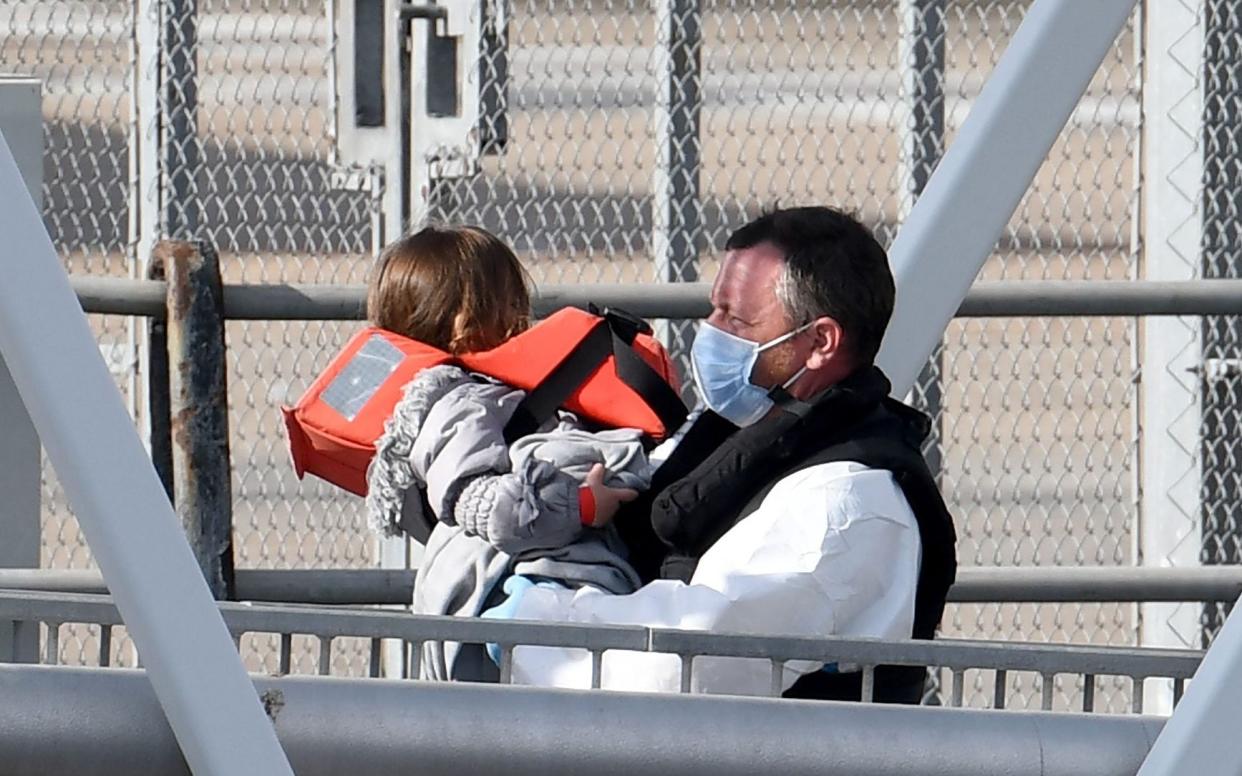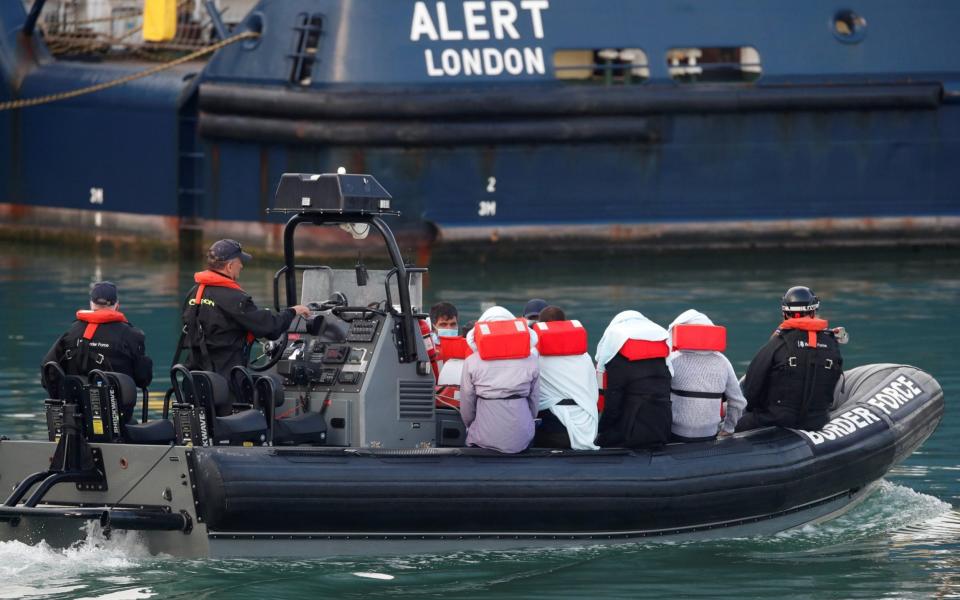Exclusive: Quarter of 'child' migrants crossing Channel are over 18, says Kent council

A quarter of migrants and refugees who claim to be children after crossing the English Channel in small boats to reach Britain are in fact judged to be aged 18 or older, it can be revealed.
Age assessments carried out by social workers have concluded that around 25 percent of unaccompanied ‘child' migrants who make the crossing are older than they claim.
Many believe they will get preferential treatment if they are treated as children by the UK immigration authorities.
But figures obtained by the Telegraph have shown that of the 1,668 who claimed to be children after landing on the Kent coast in the past five years after making the treacherous journey in small boats and dinghies from France, more than 400 have later been assessed to be over 18.
A source at Kent County Council (KCC) told The Telegraph: “Following age assessment around 25 per cent are assessed as being 18 or over. They will then almost definitely appeal this through the courts and KCC pays all of the legal fees.”
Refugee campaign groups dispute the figures, claiming the assessment process is unscientific and arbitrary.
The revelations come after the death of a refugee named as Abdulfatah Hamdallah, whose body was found washed up on a beach at Sangatte, near Dunkirk, last week after the inflatable dinghy in which he was sailing sank.
His 16-year-old companion, who survived the tragedy, said Mr Hamdallah (see picture below) had suggested he was also 16, but documents found on his body showed he was aged 28.

Originally from West Kordofan, a Sudanese state bordering the war-torn areas of Darfur and the Nuba Mountains, Mr Hamdallah is understood to have fled his country in 2014, spending two years in Libya with his older brother before heading to France.
Had he made it to Britain and been detained by HM Coastguards and Border Force officials he would have been interviewed and assessed by social workers to determine his real age.
The Telegraph has established that Kent is now transferring new arrivals to local authorities around the country, as it can no longer cope with the influx. The council announced on August 14 that it had reached its capacity for the safe care for new arrivals of unaccompanied asylum-seeking children (UASC) and was unable to accept any new arrivals.
Kent is currently responsible for 602 under 18-year-olds who were detained after crossing the Channel, many of whom have been placed with foster carers in the country. The cost of looking after these children has placed a strain on Kent’s coffers, costing its council tax payers £200,000 a month.
At the same time another 950 arrivals, aged 18 to 25 have been given temporary accommodation and assisted living.
Since June 1 Kent has had to transfer 111 UASCs to other local authorities.
Norfolk County Council has agreed to take 36 new unaccompanied children in the past few weeks and is hiring contract social workers to assess their needs and determine their true age.
Those deemed to be under 18 will be entitled to local authority funded assistance with accommodation and living assistance up until they are 25.
Those found to be over 18 will be returned to the care of the Home Office to determine whether they qualify for refugee status. If not they will be returned to their countries of origin, a process that can take several years following appeals under human rights law.
Some social workers have expressed concern at the increased burden on councils trying to assess the true age of unaccompanied children, with one telling the Telegraph: “Norfolk for example are offering £32 per hour for social workers to work with the UASC, Southend Borough Council are only paying £28 for the same role. They will be required to drive to Dover to pick these young people up. Those who claim to be under 18 (as most do) will have to have an age assessment done, this can take months.
“But age assessment social workers are like hens teeth. So the local authorities will normally go with the age declared.
“I find it appalling that these arrivals are being scattered across the UK without any criminal/terrorist/ID checks being done. They are now just being handed over to other local authorities.”
Sources say initial security and criminal checks are carried out by Border Force officials before the children are handed over to local authority care.
Since the start of the year a total of 4,999 refugees and would-be migrants have been detained after arriving in the UK on small boats across the Channel, many of them originally from war-torn countries such as Syria and Sudan (see picture below). Around 450 of those have been unaccompanied minors - with 97 arriving this month alone, the single largest monthly figure in the past five years.

However campaigners point out these kinds of illegal cross-channel journeys accounted for just 0.4 per cent of all migrants reaching the UK, in 2019, with the rest arriving by planes, ferries and Eurotunnel.
Kent Refugee Action Network said: “Age assessments are imprecise, subjective and arbitrary. In fact the problem is not people pretending to be younger than they are, it’s age assessments that often put them as older than they are and that has devastating consequences, leading to children in foster care being moved to adult accommodation.”
The Coram Children’s Legal Centre said: “Age determination is an inexact science, and the margin of error can sometimes be as much as five years either side, especially around the time of puberty. There is no single reliable method for making precise estimates, and no conclusive medical test."
Warning Home Secretary Priti Patel that the county had reached the limit of the number of UASCs for which it could safely care, the leader of Kent County Council, Roger Gough, said: “This is a huge challenge for Kent, but a relatively small challenge to solve nationally, and should have been resolved before now.
“Since the arrival of significant numbers of UASC at the port of Dover in 2014/15, KCC has cared for and found homes for over 1500 UASC in Kent, whilst still sustaining our focus on delivering high-quality services to citizen children in care.”

 Yahoo News
Yahoo News 
